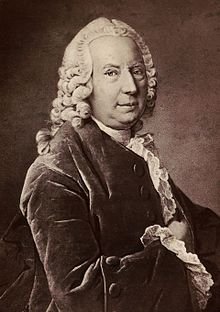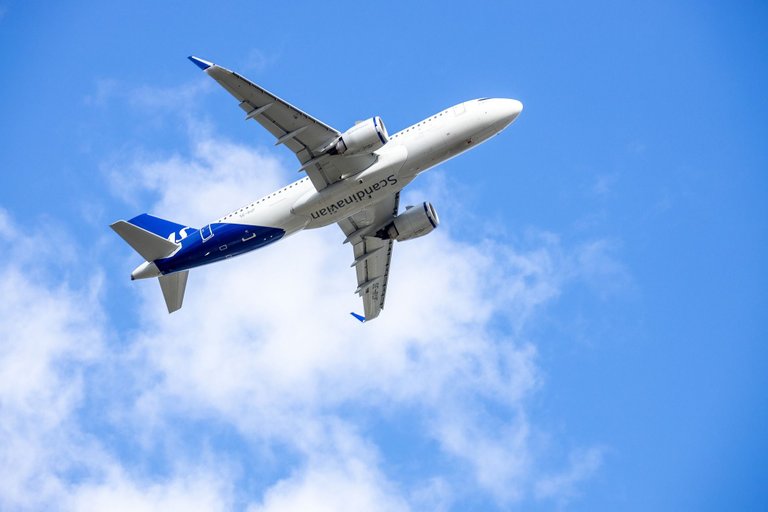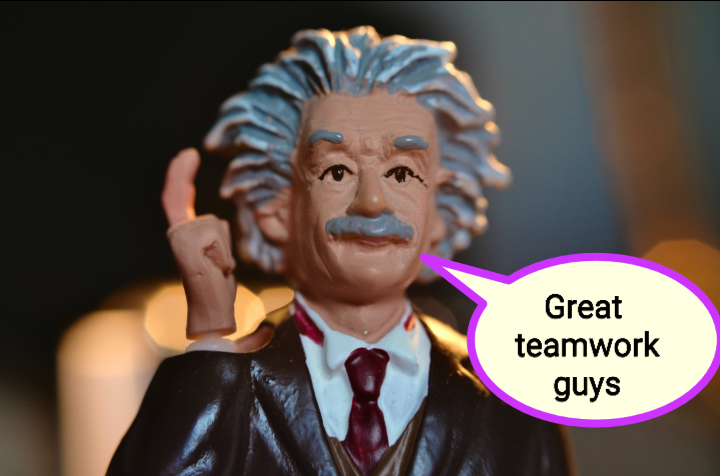The Unsung Heroes Of Modern Science - Daniel Bernoulli
Welcome to another episode of our unsung heroes of modern science and in this episode, we going to be looking at another interesting historical figure who most of us might not be aware of. He also existed during the times of Newton and Leibniz (18th century) though he was a later generation. He didn't do much compared to what Newton and Leibniz did but his contributions to science were very important. As a matter of fact, most of his contributions are still actively being used today.
Who then is this mysterious dude ?
Wait a minute, is there still need introducing the name of this person ?
I mean, it's pretty obvious. However, for those of us who may have missed the clue, it's none other than Daniel Bernoulli.
Before we proceed, we would like to make some few and interesting remarks and it's that most of the early generations of the Bernoulli family were renowned and gifted mathematicians. Just for a few, Daniel's father (Johann Bernoulli) was one of the early developers (not to be confused with discoverer) of infinitesimal calculus, especially differential equations, Daniel's uncle Jacob Bernoulli (Johann's elder brother) was one of the earliest developers of modern probability theories and discoverer of what is now known as the Euler constant (e) - found in the exponential function (exp(x)). His (Daniel) brothers and cousin were also distinguished mathematicians.
Academically, Daniel had degrees in business and medicine (PhD in anatomy and botany) but these degrees were based on his father's recommendations not what he intended to pursue - career-wise, he was actually more interested in mathematics just like his father. His mathematical knowledge however, still came from his father. He actually gave his father a condition for which he would agree to study medicine in school and this condition was that his father taught him mathematics privately. His father eventually did but regretted it later (i mean his father regretted it) - he became envious of his son (even to his death) after both participated in a competition of which they both won, he felt it was a shame for he and his son (Daniel) to be considered equals intellectually.
It was on mathematics and it's applications to the real world that Daniel would eventually work on throughout the remainder of his life and thus establishing his name in the history of science.
Robert Boyle is often considered the founder of modern chemistry, especially with his experimental discovery of the well known Boyle's law but the theoretical/mathematical work is mainly due to Daniel Bernoulli, which first appeared in his book titled Hydrodynamica . His theoretical/mathematical treatment of Boyle's law laid grounds for the kinetic theory of gases and modern thermodynamics - one of the most important aspects of classical physics. As a matter of fact, the advent of thermodynamics led to one of the greatest industrial revolution in history. Industrial chemistry wouldn't have been possible if not for thermodynamics, the understanding of operations and design of engines used in automobiles such as the internal combustion engine wouldn't have been possible if not for thermodynamics, same as your refrigerator and others.
He was also interested in fluid dynamics and he made very important discoveries in this field. He, together with Euler (one of, if not the greatest mathematician of all time) once investigated the relationship between the speed of a fluid and the fluid's pressure. During the course of their investigation, he discovered a relationship between the height a flowing fluid rose up to in the vertical part of a vessel and the pressure of the same fluid flowing in the horizontal part of the same vessel - note that this height and velocity of the fluid are directly related but not linearly in this scenario. This discovery was of great importance in the field of medicine as at that time, as the technique used by Daniel to discover this relationship was used by the physicians of that time to determine the blood pressure of patients. Though this technique of measuring pressure is no longer in use in medicine, it's still being used in aerodynamic experiments. He however took this discovery further (mathematically) and discovered what is now known as the Bernoulli principle. This principle (Bernoulli's principle) is of great importance in aerodynamics, even to this day. For example, the wings of modern aeroplanes have a specific/special type of shape that is sometimes called an "aerofoil", this shape is in great agreement with Bernoulli's principle and it mainly aids in the lifting of the aircraft into the air. The carburetors in car engines also make use of this principle for proper mixing of air and fuel.
Together with Euler, he worked on elasticity - see the Euler-Bernoulli beam theory. He is also believed to have first discovered the principle of superposition - a property of linear systems, especially those from oscillatory physical systems. As a matter of fact, this principle is at the core of quantum physics, it sometimes brings into account quantum entanglement and it's also a property that would make future computers (quantum computers) more faster and powerful than the current ones (classical computers).
While trying to resolve a paradox called the St Petersburg paradox that was posed by his cousin Nicolas Bernoulli, he contributed to economics, especially in the area of risk (utility theory) - he laid the foundations.
He also happened to be amongst the earliest, if not the first person to analyze statistical problems that involved censored data (not fully known data). Nowadays one use of such technique is checking the efficacy of vaccinations during an epidemic/pandemic. As a matter of fact, in his original work in 1766, he was able to analyze the data (censored) from the smallpox epidemic to show the efficacy of inoculation. Lastly, he also made contributions to the theory of probability.
Like we said earlier, he didn't do much as compared to Newton and Leibniz but his little contributions had striking effects in science and technology, even to this day.
It's here we conclude this article, have a thoughtful day and see you next time.
For further reading
Thank you all once again for stopping by to read my jargons and also thank you @juecoree, @lemouth and the @Steemstem team for your valuable supports.
Lastly, please don't forget to do the needful
Upvote
Comment
Reblog
If you enjoyed my jargons.




I am always confused with the so-many Bernoulli's and about which one did what. Thanks for this nice blog and story. I really enjoy reading these slices of our (scientific) history.
It's expected, considering the fact that there were many contributors from the same family contributing to almost the same field and that their surnames (Bernoulli) was what was being used as their names. Surprisingly, the Bernoulli family seems to be related to the Curie family - I mean the family of the husband and wife that contributed to our knowledge of the periodic table.
Yeah,me too. How can one understand the workings of the present without having a knowledge of the past. You're welcome by the way.
Thanks for your contribution to the STEMsocial community. Feel free to join us on discord to get to know the rest of us!
Please consider delegating to the @stemsocial account (85% of the curation rewards are returned).
You may also include @stemsocial as a beneficiary of the rewards of this post to get a stronger support.